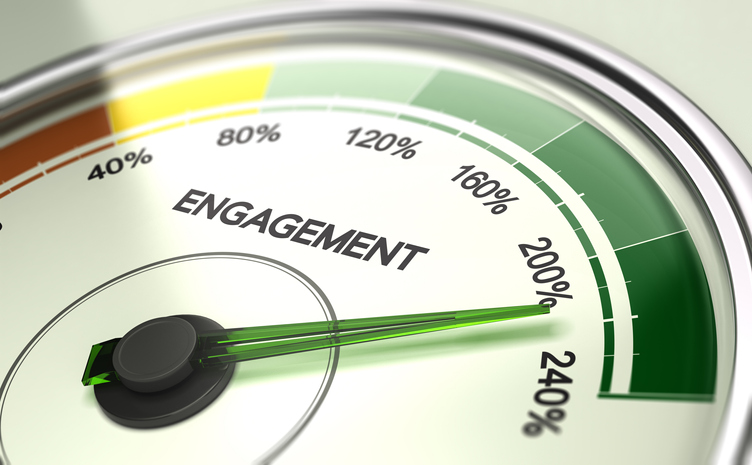Political conflict and change are normal features of life, but in times of heightened tension and polarisation – within a country or between countries – they can cause widespread anxiety.
Political conflict within a country can lead to heated disputes and hard feelings. The more closely a person’s political stances are tied to their core values and beliefs, the more they may worry about the consequences of political changes. When ‘your side’ loses, it can feel like the world is going off track in terrible and permanent ways. You can feel personally threatened in ways that trigger deep and uncomfortable emotions. When polarisation is intense, a country’s political conflicts can lead to violence.
Conflict between countries, when it escalates to threats of or actual armed conflict, can be even more disturbing, raising the threat of immediate danger and loss of life.
Compounding the emotional effect of political polarisation or international tension is the constant access to the news through smartphones and other technology, often amplified by social media. It can feel like there’s no escape from jarring and disturbing headlines.
How can you manage your anxiety in times of national and international tension while also remaining engaged in positive ways? The more people are involved in positive ways, the healthier your society and community will be – and the more you are aware of the actual risks surrounding the tension, the better prepared you will be to keep you and your family safe. Following are some suggestions from mental health experts about how to stay aware and involved while attending to your own wellbeing.
Stay informed, but set boundaries on your news intake.
If you find the news to be emotionally upsetting, set limits on how much you take in. Unless there is an imminent risk of danger for you or someone you love, resist the temptation to check the headlines constantly throughout the day. Turn off nonemergency alerts from news feeds so they don’t constantly grab your attention and distract you. Instead, set aside a short block of time in the morning and early evening to catch up on new developments. Limit your exposure to exchanges of political opinion on social media and worst-case predictions of what might happen next.
Instead of waiting for the news to come to you, do research on issues that matter to you, looking at well-researched and reliable sources. Learn about the full range of possible next steps in the current state of tension, and come up with practical plans for ways you might respond.
Be respectful in conversations about politics.
In a polarised world, people may sometimes attach evil motives or negative attributes to those who disagree with their positions. Accept that people have different opinions – based on their life experience, their understanding of the world and their values. Be open to listening to and learning from the views of others. Share your own views, when appropriate, in respectful and thoughtful ways. A good way to hear another person and to be heard is to share the life stories that lie behind their (and your) views and opinions. This gives you an opportunity to connect at a human level and to explore the grey areas of difficult subjects, instead of simply disagreeing based on oversimplified assumptions. Look for the areas where you agree and the experiences you have shared, and build from that.
Be mindful of your surroundings, too, when you express your political views. It’s generally not appropriate to debate political differences at work, for example, or to force a political conversation on a colleague. Even when you have an interested listener, be aware of who else is within range to hear your conversation and who might be offended or upset by your views. Political discussions among family members or friends with different views can also become emotional. Given how difficult it is to change a person’s views, consider whether it’s worth risking important relationships to have those conversations. It may be better to focus on shared interests.
If a conversation about politics becomes heated and unproductive at work or socially, politely step away from it or change the subject. Resist the temptation to get in the last word.
Get involved.
One of the most important actions you can take to maintain a sense of control in a turbulent world is to get involved. You can try these ideas:
- Express your political views in peaceful ways when that is possible and safe, by gathering with others in a peaceful demonstration, for example, or writing a thoughtful opinion piece for a newspaper.
- In times of war, follow the guidance and laws of your government and your conscience, participating in military service, for example, or contributing to public service in another way.
- Share your ideas with government officials and others in your community.
- Find opportunities to volunteer in your community or for a cause you care deeply about.
- Engage in small acts of kindness to neighbours or people in need.
- Attend a local government meeting to listen and learn about local issues.
- Educate yourself on an issue you care about, and find ways to help organisations that are working to make a difference in that area.
When you take positive and responsible action, it helps your community and society at large. It also helps you overcome feelings of helplessness and powerlessness.
Take a long-term perspective.
In the longer arc of history, opposing forces push in one direction, then another – and somehow countries, communities and individuals get through troubling times. When you find yourself caught up in anxiety about today’s news, think back to other contentious times and the progress that has been made from generation to generation. It’s also important to understand that big changes take time, and that progress rarely follows a straight and steady line.
Seek calm in your community, mindfulness, faith or nature.
Different people have different ways of finding calm in stressful times. Turn to your circle of supportive friends, practices like mindfulness and meditation, or your faith and community. Time in nature can also help you remove yourself – even if only for a few moments at a time – from the turbulence that is causing stress. With a calmer mind, you’ll be better able to engage with the world as it is and find some peace.
Take care of yourself.
- Take time to enjoy family and friends. This is important even when you can’t be together in person. Supportive, social connections are key to maintaining physical and mental health.
- Get enough sleep. Follow a consistent bedtime routine, and avoid the stimulation of screen time, alcohol or caffeine as bedtime approaches.
- Eat a healthy diet. Incorporate plenty of fruits, vegetables and wholegrains. Include fish, poultry and nuts for protein. Avoid packaged foods and foods with added sugar.
- Be physically active. Include a walk or other activity in your daily routine. Physical activity is vital to staying healthy and has an important, calming effect.
- Pursue interests and hobbies. Engage in activities that give you pleasure and absorb your full attention. Take an online class to learn a new skill, or delve deeper into a lifelong passion.
- Find ways to laugh. Watch a funny film or TV programme. Spend time with friends who can make you laugh. Humour is wonderful medicine to counter worries.
- Avoid ineffective and potentially harmful coping mechanisms. This includes alcohol or substance use.
Seek help.
If the stress around the current situation feels overwhelming, and anxiety, sadness, anger or other emotions make it hard to cope with your daily routine, seek help. Some emotional challenges are too big to tackle by yourself. A trusted friend may be able to help as a sounding board and sympathetic ear, or you might benefit from the help of a professional mental health counsellor or therapist. Your employee support programme can help with short-term strategies for coping with anxiety, and most can help you find a therapist for in-person, telephonic or video support sessions.



































